Judges
The SICC is a division of the General Division of the High Court and part of the Supreme Court of Singapore. All appeals from the SICC will be heard by the Court of Appeal of Singapore.
Judges of the Appellate Division, Judges of the High Court and International Judges of the Supreme Court may be designated by the Chief Justice to hear cases in the SICC. The Chief Justice and Justices of the Court of Appeal may also hear cases in the SICC.
The Chief Justice and Justices of the Court of Appeal including Judges of the Appellate Division, Judges of the High Court, Senior Judges and International Judges designated by the Chief Justice, may hear appeals from the SICC.
The judges who may hear cases in the SICC and appeals from the SICC include the following:
First Instance Bench

Justice Philip Jeyaretnam was appointed Judicial Commissioner of the Supreme Court on 4 January 2021 and High Court Judge on 1 November 2021 and appointed President of the SICC on 2 January 2023. His focus on the Bench has been in building and construction, shipbuilding, finance, securities, banking, complex commercial cases, company, insolvency, trusts, arbitration, medical negligence tort claims and criminal trials. He is also a member of the Judicial Service Commission, and the Presidential Council for Minority Rights.
Justice Jeyaretnam read Law at Cambridge and graduated with First Class Honours in 1986. He was called to the English Bar in 1987 and to the Singapore Bar in 1988 and was conferred the title of Senior Counsel in 2003 at the age of 38, one of the youngest lawyers to be appointed Senior Counsel. In 1988, he received the Airey Neave Award for research on the rule of law. In 1990, he was given a Fulbright Fellowship, which took him to the University of Iowa International Writers’ Program and to Harvard Law School.
While in practice, he was widely recognised as an expert in commercial litigation, arbitration and construction law in all major legal publications. In 2020, the Law Society conferred on him the CC Tan Award. He was managing partner of Rodyk & Davidson LLP from 2011, and, following its combination with Dentons, ASEAN CEO.
He was the founding chairperson of the Society of Construction Law (Singapore), from 2002 to 2004, and served as the President of the Law Society during the years 2004 to 2007. From 2009 to 2020, he was a member of the Public Service Commission. A novelist and short story writer, he received the Young Artist of the Year Award for his literary work in 1993 and a SEA Write Award in 2003.

Justice Chua Lee Ming was appointed Judicial Commissioner in 2015 and High Court Judge in January 2017. He earned his Bachelor of Laws from the National University of Singapore in 1983 and was called to the Singapore Bar in 1984. He received his Master of Laws from the University of Cambridge in 1988.
Justice Chua began his legal career in 1984. He held various positions such as serving as Deputy Registrar and Magistrate of the Subordinate Courts (renamed as State Courts in 2014). He also served in the Supreme Court Registry for three years before becoming State Counsel and Deputy Public Prosecutor in the Attorney-General’s Chambers in 1989. Justice Chua left for private practice in 1990 and became a Partner of the law firm, Lee & Lee in 1991. In 1998, he joined the Government of Singapore Investment Corporation Pte Ltd (renamed as GIC Pte Ltd in 2013), where he later became the General Counsel.
He was a founding member of the Singapore Corporate Counsel Association, and has served on various committees of the Law Society of Singapore as well as the School of Law Advisory Board, Singapore Management University. Justice Chua continues to serve on various committees of the Singapore Academy of Law.

Justice Aidan Xu @ Aedit Abdullah was appointed Judicial Commissioner in 2014 and High Court Judge on 30 September 2017. Justice Xu obtained a Bachelor of Laws (First Class Honours) from the National University of Singapore (NUS) in 1994, as well as a Bachelor of Civil Law (First Class) from the University of Oxford in 1998 and a Master in Public Management from NUS in 2007.
He joined the Singapore Legal Service in 1995 and began his career as a Justices’ Law Clerk. He then taught at the Faculty of Law, NUS, before re-joining the Singapore Legal Service. He has held various appointments, such as Deputy Public Prosecutor, Deputy Senior State Counsel and District Judge of the Subordinate Courts (renamed as State Courts in 2014). He was appointed Chief Prosecutor (Economic Crimes and Governance Division), and subsequently Chief Prosecutor (Criminal Justice Division) at the Attorney-General’s Chambers in 2011 and served as special counsel at the Monetary Authority of Singapore from January 2008 to June 2009. He was appointed Senior Counsel in 2012.
He is the Judge in charge of Transformation and Innovation in the Judiciary, and is also Chair of the Promotion of Legal Technology Innovation Committee of the Singapore Academy of Law.
.tmb-small.jpg?Culture=en&sfvrsn=ad3ddd27_1)
Justice Dedar Singh Gill was appointed Judicial Commissioner of the Supreme Court on 1 August 2018 and High Court Judge on 1 August 2020. Justice Gill graduated with a Bachelor of Laws (2nd Class Upper Honours) from the National University of Singapore in 1983.
Justice Gill last held the position of Managing Director of the Intellectual Property Department at Messrs. Drew and Napier LLC. He had appeared as counsel before the High Court and Court of Appeal for major corporate clients and had established a considerable reputation for his expertise and experience in intellectual property law.
Justice Gill was appointed by Chief Justice Sundaresh Menon to manage the Intellectual Property (IP) list of the High Court and implement the recommendations submitted by the IP Dispute Resolution Framework Review Committee to review the Intellectual Property dispute resolution system in Singapore. In addition to hearing IP cases, Justice Gill also hears cases pertaining to contract, tort and negligence.

Justice S. Mohan was appointed Judicial Commissioner of the Supreme Court on 3 January 2020 and High Court Judge on 1 November 2021. He graduated with a Bachelor of Laws (2nd Class Upper Honours) from the National University of Singapore in 1992 and was called to the Singapore Bar in 1993. Justice Mohan specialises in maritime, shipping and international trade disputes and accumulated more than 25 years of advocacy experience in legal practice as a maritime/shipping and international trade disputes lawyer. Prior to joining the Bench, Justice Mohan was the Managing Director of Resource Law LLC. As a lawyer, Justice Mohan appeared as counsel before arbitral tribunals, in the High Court and Court of Appeal on various contentious commercial matters involving, among others, maritime, shipping and international trade disputes.
Justice Mohan was among the first select group of legal practitioners to be recognised and accredited by the Singapore Academy of Law in 2019 as Senior Accredited Specialist in Maritime and Shipping law. He was also an accredited arbitrator on the Singapore Chamber of Maritime Arbitration panel of arbitrators and a Fellow of The Singapore Institute of Arbitrators. Justice Mohan was also consistently recognised in legal directories such as Chambers Asia Pacific for his considerable shipping and admiralty experience.
As a judge, Justice Mohan’s areas of focus are shipping and admiralty, arbitration, banking and securities, complex commercial disputes, building and construction, and tort claims (including personal injury, defamation and professional/medical negligence).

Justice Andre Maniam was appointed Judicial Commissioner of the Supreme Court on 4 May 2020 and High Court Judge on 1 November 2021. He graduated with LLB (Honours) from the National University of Singapore and was awarded the Adrian Clark Memorial Medal for being the top law student for his year. Justice Maniam had almost 30 years of experience as a lawyer, with the last 10 years as a Senior Counsel in various modes of dispute resolution including litigation, arbitration, and mediation. His practice covered a wide range of subject areas such as Administrative and Constitutional law, Arbitration, Bankruptcy and Insolvency, Building and Construction, Commercial and Corporate disputes, Cross-Border trade, as well as Regulatory and Financial Crime matters.
Justice Maniam was on the panels of various arbitral institutes like the Singapore International Arbitration Centre and the Asian International Arbitration Centre. He was also on the Singapore International Mediation Centre’s panel of specialist mediators.
He is a member of the Supreme Court’s Costs Panel Committee and the Singapore Academy of Law’s Professional Affairs Committee.
Justice Maniam previously headed the Litigation & Dispute Resolution Group at WongPartnership LLP.

Justice Hri Kumar Nair was appointed High Court Judge on 2 January 2023. He graduated from the National University of Singapore with Second Class Honours (Upper) in Law in 1991. He was a director at Drew & Napier LLC and has more than 25 years of experience as a litigator. He was appointed Senior Counsel in 2008 and is recognised in the legal field as an expert in dispute resolution and arbitration. Mr Nair’s main areas of practice include banking and finance, fraud and complex commercial disputes. He has also led investigations into the affairs of banks and listed companies. He has been involved in a series of high-profile cases, including a landmark case involving fraudulently issued cashiers’ orders and gaming contracts, an action involving a multi-million dollar fraud on foreign banks and defamation actions involving political figures and international publications.
Justice Nair was appointed and assumed office as Deputy Attorney-General on 1 Mar 2017. In his role as Deputy Attorney-General, Mr Nair has been involved in several high profile cases, including the appeal of the City Harvest Case and in important criminal cases such as Roshdi bin Abdullah Altway v PP <2021>SGCA 103, which clarified the Prosecution’s duty of disclosure, and PP v Soh Chee Wen and Anor <2020> SGHC 186, which was the first decision in Singapore on the Prosecution’s right to assert litigation privilege.

Justice Thomas Frederick Bathurst graduated with a Bachelor of Arts in 1969, followed by a Bachelor of Law in 1972 from the University of Sydney. He began his legal career in 1972 as a solicitor in New South Wales (NSW) and was admitted to the NSW Bar in 1977. Justice Bathurst was appointed Queen's Counsel (now called King's Counsel) in 1987.
Prior to his appointment to the Bench, Justice Bathurst served as the President of the Australian Bar Association from 2008 to 2010; and as President of the NSW Bar Association from 2009 to 2011. He was appointed as a member of the Australian Government’s Takeover Panel from 2006 to 2011.
On 1 Jun 2011, Justice Bathurst was appointed the Chief Justice of the Supreme Court of NSW and then concurrently as Lieutenant Governor of NSW in Feb 2012. During his tenure at the Bench, Justice Bathurst presided over cases in the areas of criminal law and commercial law; and had heard numerous cases of public interest.
In Jun 2014, Justice Bathurst was awarded the Companion of the Order of Australia for his eminent service to the Judiciary and to the law, to the development of the legal profession, particularly through the implementation of uniform national rules of conduct and to the community of NSW.
Justice Bathurst retired as the Chief Justice of the Supreme Court of NSW on 5 Mar 2022 and is currently a Fellow with the Australian Centre for International Commercial Arbitration (ACICA). His areas of expertise are in Commercial Law, including contractual disputes; Corporations Law; Trade Practices Law; and Administrative Law.
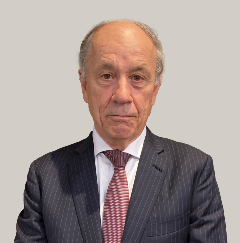
Justice Besanko, KC read law at the University of Adelaide, Australia and obtained a First Class Honours degree in 1977. He was called to the Bar in 1984 and practised as a barrister in South Australia working in the areas of corporation and administrative law, trusts, estates and native title from 1984 to 2001. He also undertook appellate work and was appointed Queen’s Counsel in 1994.
Justice Besanko, KC was appointed a Judge of the Supreme Court of South Australia in 2001 before becoming a Judge of the Federal Court of Australia in 2006. During his time on the Federal Court of Australia (2006-2024), Justice Besanko, KC also served as an additional judge of the Supreme Court of the Australian Capital Territory from 2007 to 2024 and as the Chief Justice of the Supreme Court of Norfolk Island from 2015 to 2024.
Justice Besanko, KC’s commitment to the law and legal profession can be seen from the significant roles that he undertook within the profession. He was a member of the South Australian Legal Practitioners Disciplinary Tribunal from 1989 to 1998, and was a presiding member of the tribunal from 1998 until 2001. He was also President of the South Australian Bar Association from 2000 to 2001. Justice Besanko, KC is the Deputy President of the Australian Academy of Law.
Justice Besanko, KC’s areas of expertise include Commercial Law and Company Law, Equity, Public and Administrative Law, Intellectual Property, Bankruptcy and Company Liquidations as well as Appeals.

Justice Eder was formerly a Judge of the High Court of England and Wales, and was assigned to the King’s Bench Division and the Commercial Court from 2011 to 2015. Prior to his appointment to the Bench in the United Kingdom, he was a Barrister from 1975 to 2010, and was appointed Queen's Counsel (now called King's Counsel) in 1990. From 1999-2003, he was a Visiting Professor at University College London.
He is widely recognised as an expert in the areas of commercial disputes, civil claims and international arbitration involving all aspects of commercial law including banking, shipping, sale of goods, commodities, oil/gas and insurance. He was previously the Senior Editor of Scrutton on Charterparties and Bills of Lading. In addition to his role as an International Judge on the SICC, he is an international arbitrator/mediator.
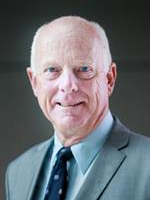
Justice Giles was appointed an International Judge of the SICC on its establishment in January 2015. He graduated from the University of Sydney with a BA in 1961 and LLB (Hons) in 1965, and from the Oxford University with a BCL (Hons) in 1968. After a time in articles and as a solicitor, he was admitted to the NSW Bar in 1971 and became Queen's Counsel (now called King's Counsel) in 1983. In 1988, he was appointed to the Supreme Court of NSW, becoming Chief Judge of the Commercial Division in 1994 and a Judge of the Court of Appeal in 1998. He retired from that Court in December 2011.
Justice Giles principally practiced in equity and commercial law, but the Court of Appeal took him into most areas of civil and criminal law.
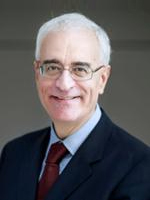
Justice Hascher was appointed to the Supreme Judicial Court in France as Judge in 2012. He also holds the position of Secretary General of the Network of the Presidents of the Supreme Judicial Courts of the European Union since his election in 2004. He received a Bachelor of Laws from the University of Paris in 1977 and a Master of Laws from Harvard University in 1983 after earning a Fulbright scholarship.
He joined the French Judiciary in 1982 as trial court judge before working for the Ministry of Justice in 1986. From 1990 to 1998, he served as the General Counsel and Deputy Secretary General of the ICC International Court of Arbitration. In 1998, he was appointed as Court of Appeal Judge before being promoted to Presiding Judge in 2008.
Justice Hascher has also lectured at the Hague Academy of International Law in 1999 and was visiting Professor at University College London in 2005 and at the University of Texas at Austin in 2007. He is President of the French Society of Comparative Law (2016), Honorary Bencher of Gray’s Inn (2005) and a member of the American Law Institute (2007).
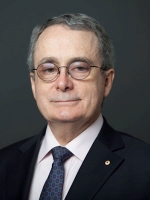
Justice Douglas Jones is highly regarded as an International arbitrator, particularly in construction disputes. Chambers Asia Pacific had recognised him as the leading Asia Pacific Arbitrator for construction disputes. In 2018, he maintained his Band One ranking in the Chambers Asia-Pacific International arbitration category for an eighth consecutive year. In the same year, he was identified as one of the 10 most highly regarded arbitration practitioners in London and a leader in construction disputes.
Justice Douglas Jones, graduated with a Master of Laws in 1977 from the University of Queensland, Australia, joined Clayton Utz as a Partner and Head of the firm’s Construction group in 1993. He headed their International Arbitration and Private International Law group in 1995 and in 2000 was heading Clayton Utz’s National Major Projects Group.
Upon his retirement from Clayton Utz in 2014, Justice Douglas Jones became a full time independent International Arbitrator. His appointments in a number of professional bodies include President of the International Academy of Construction Lawyers; Past President, Chartered Arbitrator, and one of four Companions, of the Chartered Institute of Arbitrators; and Fellow of Resolution Australia, and of the Arbitrators & Mediators Institute of New Zealand.
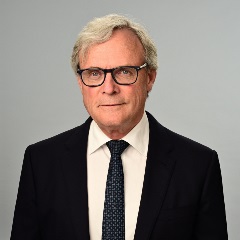
Justice Meagher graduated from the University of New South Wales in 1976 with degrees in commerce and law. He then joined Minter Simpson as a solicitor. In 1980, he completed a Master of Laws degree at London University (LSE). In Feb 1982, he was called to the Bar in New South Wales and was appointed a Senior Counsel for that State in 1995.
Justice Meagher was sworn in as a Judge of the Supreme Court of New South Wales and the Court of Appeal in August 2011. By that time, he had spent almost 30 years practising principally at the commercial bar, including 16 years as a Silk. On his retirement in Aug 2024, he was the senior puisne judge on the Court of Appeal and during his time on that Court period, he also sat as a judge on the Court of Criminal Appeal.
Justice Meagher’s judicial experience is broad, comprising general civil and criminal law. His commercial law experience as a counsel and judge includes insurance and reinsurance, shipping and aviation, professional negligence, banking and finance, corporations and competition law as well as equitable and restitutionary remedies.

Justice Meier-Beck has more than 30 years of experience deciding on intellectual property and competition (anti-trust) law. He studied law at the Universities of Bonn and Freiburg and obtained a Doctorate in Law in 1982 from the University of Freiburg. He completed his legal internship in Dusseldorf and then worked as a lawyer there before serving as a judge at the Regional Court and Higher Regional Court of Dusseldorf from 1985 to 2000 where he mainly dealt with patent law.
He was appointed as the Presiding Judge of the 4th Civil Chamber of the Regional Court in September 1993 which was responsible for patent, trademark, and design disputes. In July 2000, he was appointed as a Judge at the Federal Court of Justice - the Bundesgerichtshof which is the German Federal Supreme Court where he dealt primarily with patent and competition cases. He was the Presiding Judge of the 10th Civil Senate (i.e. the Patent Division) from 2010 to 2019 before moving to preside over the Cartel Senate (i.e. the Competition Law Division) from 2019 till his retirement in September 2021. He has been working as an independent adviser and expert in international patent disputes since October 2021.
Justice Meier-Beck has been teaching patent law since 1995. In 2005, he was appointed Honorary Professor by the Heinrich Heine University Dusseldorf; and in 2022 by the University College London, Faculty of Laws (UCL). As an Honorary Professor at UCL, he is involved in research, teaching and public engagement in the Institute of Brand and Innovation Law, in areas involving patent law and competition law. He also serves as a member of the Advisory Committee of the Unified Patent Court.
Justice Meier-Beck is among the most influential Intellectual Property (IP) figures in Europe and a prominent advocate for harmonisation of patent laws across Europe and throughout the wider world. He was inducted into the IP Hall of Fame in 2013. His areas of legal expertise include IP law particularly in patent, utility model and plant variety protection; tort law; competition (anti-trust) law; regulatory law of energy networks; public procurement law and law of contracts for work, travel and passenger transport.

Justice Yuko Miyazaki graduated with a Bachelor of Law degree from the University of Tokyo, Japan in 1976, followed by a Masters of Law from the Harvard Law School in 1984. She began her legal career in 1979 as the first full time female lawyer of law firm Nagashima & Ohno, one of Japan’s most prestigious law firms. She left the firm in 1984 to take on the appointment of legal counsel with the World Bank for two years before re-joining Nagashima & Ohno in 1986. She was appointed Partner from 1988 to 2016 and subsequently, Head of Tax Practice Group/Senior Counsel in 2017. In 2018, Justice Miyazaki became the sixth female Justice of the Supreme Court of Japan. She retired in July 2021 and is currently a special advisor with Nagashima Ohno & Tsunematsu (formerly Nagashima & Ohno).
As a lawyer, she handled mainly corporate, international commercial transactions, taxation (with particular emphasis on international taxation and tax litigation) and financial transactions. As a Justice of the Supreme Court of Japan, she presided over various appeal cases including civil, administrative, labour, intellectual property and criminal cases. As a visiting professor of the University of Tokyo School of Law from April 2004 to March 2007, Justice Miyazaki contributed to tax education by teaching taxation of financial transactions/products and international taxation. From 2008 to 2010, she taught international taxation at the Kyoto University Law School. Justice Miyazaki was a member of the National Bar Examination Commission from 2011 to 2013.

Justice Peck was a Judge in the Bankruptcy Court for the Southern District of New York from 2006 to 2014 and presided over the Chapter 11 and Securities Investor Protection Act cases for Lehman Brothers, which constituted the largest bankruptcy filings in US history. As a Judge, he also successfully mediated some of the most complex Chapter 11 cases, including American Airlines, General Motors, Residential Capital and Excel Maritime. His areas of focus include bankruptcy, creditors rights, business restructuring, financial contracts and derivatives as well as mediation and dispute resolution. He is a well-known American insolvency Judge and mediator who has handled and resolved some of the largest corporate insolvencies.
Justice Peck currently chairs the Business Bankruptcy Advisory Committee of the United States Bankruptcy Court for the Southern District of New York. By invitation, he is a fellow of the American College of Bankruptcy and a member of the expert panel of the Panel of Recognised International Market Experts in Finance. Justice Peck is a past president of the International Insolvency Institute and was judicial chair of the American Bankruptcy Institute’s (ABI) annual New York City Bankruptcy Conference and co-chair of ABI’s advisory committee on safe harbours. He also served on the board of governors of the National Conference of Bankruptcy Judges and last held the position of the Chair (Global Head) of the Cross-border Restructuring practice of international law firm, Morrison Foerster LLP, where he also headed the Mediation Practice.
Closer to home, Justice Peck is a founding member of the Advisory Committee of the Singapore Academy of Law’s Asian Business Law Institute. He is also listed as a qualified member of mediation panels of the Singapore Mediation Centre and the Singapore International Mediation Centre, and has been selected as a member of the Panel of Arbitrators of the Singapore International Arbitration Centre.
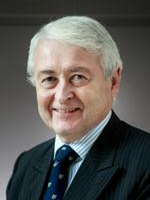
Until 2014, Justice Ramsey served for nine years on the bench as a Judge of the High Court (King’s Bench Division) of England and Wales, including a three-year period as Judge in charge of the Technology and Construction Court. He was also judge in charge of the implementation of the Jackson Reforms in the courts in England and Wales from 2012 to 2014.
He was educated in England and the United States, and then studied Engineering Science and Economics at Oxford before becoming a chartered civil engineer. He was elected a Fellow of the Royal Academy of Engineering in 2013.
In 1979, he was called to the English Bar after studying law at the City University and Inns of Court School of Law. He was appointed a King’s Counsel in 1992 and a Bencher of Middle Temple in 2002. Before his appointment to the bench, he specialised internationally in the area of construction, engineering and technology disputes both in international arbitration and in courts outside the UK.
He is the co-editor of Keating on Construction Contracts, now in its 10th edition. He is also a Visiting Professor at the Dickson Poon School of Law at King’s College, London.
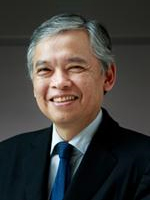
Justice Reyes was appointed as a Judge of the Court of First Instance in Hong Kong and served in that capacity from 2003 to 2012. As a Judge, his specialisation was construction, arbitration, commercial and admiralty matters. Justice Reyes obtained a BA (Law), LLM and PhD in Law from Cambridge University in 1982, 1983 and 1987 respectively, and was called to both the Hong Kong and the Singapore Bar. He was appointed Senior Counsel in Hong Kong in 2001.
He is currently a Professor of Legal Practice in the Faculty of Law at the University of Hong Kong and is an active practitioner in commercial arbitration. He was Representative of the Hague Conference on Private International Law Asia Pacific Regional Office in Hong Kong from 2013 to 2017. He is also an Overseas Bencher of the Inner Temple.

Justice Rivkin graduated from Yale University in 1977 with a B.A. magna cum laude in history and received a J.D. from Yale Law School in 1980. He was a law clerk in the United States Court of Appeals for the Seventh Circuit from 1980 to 1981 before joining Debevoise & Plimpton LLP. He has more than 40 years of experience practising private and public international law at Debevoise & Plimpton LLP, first as an Associate from 1982 to 1988 and then as a Partner from 1988 to 2022. He served as the firm’s co-chair of its International Dispute Resolution Group for more than 20 years and was a founder of its Business Integrity/Environmental, Social and Governance (ESG) Group. Justice Rivkin is an independent arbitrator with Arbitration Chambers.
Justice Rivkin’s areas of legal expertise are in international arbitration, international litigation, public international law, joint venture and shareholder disputes, business and human rights and other ESG issues, energy disputes, pharmaceutical industry disputes, construction disputes and sports law. He has long been recognised as a global leader in international arbitration, and he has been ranked in Band 1 of Chambers Global and Chambers USA since their inception. Chamber Global 2022 identified him as one of the top 10 arbitration practitioners worldwide. Chamber publications have described him as “the best arbitration practitioner anywhere” and “a true giant in the field whose depth of knowledge is incredible”.Justice Rivkin has also routinely received top recognition in Legal 500 as a “brilliant lawyer and tactician” as well as in other publications such as Who’s Who Legal and Euromoney.
Justice Rivkin has held prominent positions in arbitration institutions, government committees and other non-governmental organisations across the world. He was the President of the International Bar Association (IBA) from 2015 to 2016. He was the first American to serve in that position in 25 years. During his term, he led efforts relating to judicial integrity (on which he worked with Chief Justice Sundaresh Menon), climate change justice, business and human rights, human trafficking, human rights and the rule of law, and the independence of the legal profession, among others. Justice Rivkin has been a member of the Council of the American Law Institute (which drafts Restatements of American law) since 2009.
Justice Rivkin holds leadership positions in many arbitration institutions, including currently the Hong Kong International Arbitration Centre (which he currently co-chairs), the Mumbai Centre for International Arbitration and the Mauritius Arbitration and Mediation Centre. Justice Rivkin was appointed to the International Council for Arbitration for Sport (ICAS) in 2020, after having served as an arbitrator for the Court of Arbitration for Sport for more than 20 years, including at three Olympic Games. He is currently the Deputy President of ICAS’s Anti-Doping Division.
Justice Rivkin had also served, amongst others, as a Council member of the Singapore International Arbitration Centre (SIAC), and on the London Court of International Arbitration (including as Vice President and Chair of its North American Users’ Council), the Arbitration Institute of the Stockholm Chamber of Commerce (as Vice Chair), the Board of Directors of the American Arbitration Association, the Commission of the ICC Court of Arbitration and the Australian Centre for International Commercial Arbitration. He has frequently been involved in the drafting and revising of arbitration rules in these arbitration institutions. He is on the panels of many international arbitration institutions, including the SIAC, the Chinese International Economic and Trade Arbitration Commission (CIETAC) and the Korean Commercial Arbitration Board (KCAB).

Judge Christopher Sontchi obtained his Bachelor of Arts Phi Beta Kappa with a distinction in political science in 1989 at the University of North Carolina at Chapel Hill. He received his Juris Doctor from The University of Chicago Law School in 1992 and served as a law clerk in the Delaware Supreme Court from 1992 to 1993. He joined the law firm of Ashby & Geddes in 1993 as an attorney and was with the firm until 2006 where he represented nationally based enterprises with diverse interests in reorganisation proceedings filed in Delaware. Judge Sontchi was appointed Judge of the United States Bankruptcy Court, District of Delaware in 2006. He was designated Chief Judge for a three-year term from Jul 2018 to Jun 2021.
Judge Sontchi is a frequent speaker both in the United States and abroad on issues relating to corporate reorganisation. He is also a Lecturer in Law at The University of Chicago Law School and teaches corporate bankruptcy to international judges through the auspices of the World Bank and INSOL International (International Association of Restructuring, Insolvency & Bankruptcy Professionals). Judge Sontchi is a member of the International Insolvency Institute, Judicial Insolvency Network, National Conference of Bankruptcy Judges, American Bankruptcy Institute and INSOL International. He has published articles on valuation, asset sales and safe harbours for financial contracts.
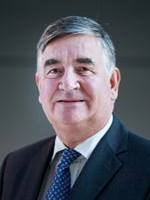
Justice Thorley, KC was appointed as an International Judge of the Singapore International Commercial Court in January 2015.
He studied Jurisprudence at Oxford University from 1968-1971 and received the degree of MA (Hons). He was called to the Bar of England and Wales by the Honourable Society of The Inner Temple in 1972 and then began practice at the Intellectual Property Bar. He was appointed King’s Counsel in 1989. Justice Thorley has more than 40 years of experience in Intellectual Property and related law,and was a leading practitioner in that field until he ceased practice in 2014. He was a Deputy High Court Judge in England and Wales and was also the Deputy Chairman of the Copyright Tribunal in the United Kingdom for eight years. He was a co-editor of the 13th-15th Editions of Terrell on the Law of Patents, a standard work of reference on UK patent law. Justice Thorley served as Treasurer of the Inner Temple in 2013.

Justice Zhang Yongjian, 64, graduated in 1989 from the University of Political Science and Law of China and was conferred a Doctor of Laws in 2007 by the Renmin University of China, where he majored in civil and commercial law. He is a National Adjudication Expert of the People’s Republic of China. He served as a Judge of the Supreme People’s Court (SPC) of the People’s Republic of China from Apr 2000. From Dec 2012 to Mar 2016, Justice Zhang successively held the positions of the Chief Judge of the First Civil Division, member of the Adjudication Committee, the Chief Judge of the Second Civil Division, and the Chief Judge of the Fourth Civil Division of the SPC.
In Apr 2017, he was appointed Deputy Chief Judge of the First Circuit Court, and Senior Judge of the First Rank. In Jun 2018, he was appointed as Senior Judge of the China International Commercial Court. He retired from the Judiciary in 2019.
Since his retirement, Justice Zhang has held the appointment of Arbitrator with the Shenzhen Court of International Arbitration, China Maritime Arbitration Commission, China International Economic and Trade Arbitration Commission, and the Shanghai Arbitration Commission. He has been a part-time Professor with the University of Political Science and Law of China since Sep 2020 and a member of the Board of Governors of the Asian Business Law Institute since Jan 2016.
Appellate Bench

Chief Justice Sundaresh Menon was appointed Chief Justice of the Supreme Court on 6 November 2012. He is the first Singapore-born Chief Justice. Chief Justice Menon graduated with a Bachelor of Laws (First Class Honours) from the National University of Singapore in 1986 and a Master of Laws from Harvard Law School in 1991. He was admitted as an advocate and solicitor in Singapore in 1987, and as an attorney and counsellor-at-law in New York in 1992.
After he was called to the Bar in Singapore, he practised with major local and international law firms, primarily as an advocate, in the fields of commercial litigation and arbitration, construction law and insolvency law. From 2006 to 2007, he served as a Judicial Commissioner of the Supreme Court. He was appointed Senior Counsel in 2008. In 2010, he was appointed the 6th Attorney-General of Singapore, a post he relinquished in 2012 shortly before his appointment as a Judge of Appeal. He was appointed to the Presidential Council for Minority Rights upon his appointment as Attorney-General in 2010 and was later appointed as its Chairman in 2012, upon his appointment as Chief Justice.
Between 2012 and 2020, Chief Justice Menon served on the Governing Board of the International Council for Commercial Arbitration, and he has been serving as a member of the International Chamber of Commerce Governing Body for Dispute Resolution Services since 2021.
He is also an elected member of the American Law Institute, an Honorary Bencher of the Honourable Society of the Inner Temple in England and the President of the Singapore Academy of Law. Chief Justice Menon was conferred an Honorary Doctorate in Laws by the University of Western Australia in 2022 for his services to the law.
Chief Justice Menon is married with three children.

Justice Steven Chong was appointed Judge of Appeal of the Supreme Court on 1 April 2017. He received his Bachelor of Laws (Honours) from the National University of Singapore in 1982. He was admitted as an advocate and solicitor in 1983 and started practising law as an associate in Drew & Napier that same year. He was made Joint Managing Partner in 1997. In 1998, he moved to Rajah & Tann as Senior Partner before becoming Managing Partner in 2003. He was appointed Senior Counsel in 1998.
Justice Chong was appointed Judicial Commissioner of the Supreme Court on 1 October 2009 and subsequently a High Court Judge in June 2010.
He assumed office as the 7thAttorney-General on 25 June 2012 and served for two years. During his stint, he established the Attorney General’s Chambers (AGC) Media Relations Unit, launched the Public Prosecution Outreach Programme, led AGC to conclude key international treaties, including the European Union-Singapore Partnership and Cooperation Agreement and initiated legislative amendments to empower the Attorney-General to represent statutory boards in legal proceedings which led to the passing of the Attorney-General (Additional Functions) Act 2014. He resumed appointment as a High Court Judge on 25 June 2014 until his current appointment.
On 8 December 2020, Justice Chong was appointed as an expert member of the International Commercial Expert Committee of the Supreme People’s Court of the People’s Republic of China.

Justice Belinda Ang Saw Ean was appointed the President and Judge of the Appellate Division on 2 January 2021. Justice Ang obtained her Bachelor of Laws from the University of Wales, Aberystwyth in 1976. Thereafter, she was admitted as a Barrister-at-Law of the Middle Temple and an advocate and solicitor in Singapore. In 1979, she received her Master of Laws (with distinction) from the University College, London. On 21 September 2016, Justice Ang was called to the Middle Temple Bench.
Justice Belinda Ang was appointed Judicial Commissioner of the Supreme Court of Singapore on 1 February 2002 and was elevated to Judge of the High Court on 2 January 2003. Justice Ang’s areas of focus are in Shipping and Arbitration matters, Finance, Securities, Banking, and Complex Commercial cases. Since 30 July 2018, Justice Ang has been sitting regularly in the Court of Appeal.
She joined M/s Godwin & Co in 1980 and was made junior partner in 1983. She also founded M/s Ang & Partners in 1985, her own boutique law firm. She was appointed Senior Counsel in 1998.
In November 2017, Justice Ang was appointed by Chief Justice Sundaresh Menon to serve as the Judge in charge of the High Court.
In addition, Justice Ang is the chairperson and director of the Board of the Singapore Mediation Centre. She also sits on the Executive Board of the Singapore Academy of Law. Since 25 January 2018, Justice Ang has been appointed a member of the Panel of Referees of the Journal of the Malaysian Judiciary. In January 2019, she was also appointed a member of the Lloyd’s Law Reports Editorial Board

Justice Woo Bih Li, Judge of the Appellate Division, was appointed President of the Appellate Division of the High Court on 1 November 2022. He was appointed Judicial Commissioner in 2000 and subsequently a High Court Judge in 2003. He also sits in the Court of Appeal from February 2019 and was appointed Judge of the Appellate Division in 2021.
Justice Woo received his Bachelor of Laws from the University of Singapore (renamed as National University of Singapore in 1980) in 1977 before being admitted locally as an advocate and solicitor in 1978.
As a Judge, he dealt with Finance, Securities, Banking, Complex Commercial Cases, Employment, Tort Claims, Public Law and Judicial Review, and Criminal Trials.
Justice Woo started his practice in 1980 with the law firm of M/s Allen & Gledhill where he became a partner. In October 1992, he set up the law firm of M/s Bih Li & Lee. He was appointed Senior Counsel in 1997.

Justice Kannan Ramesh was appointed Judge of the Appellate Division on 1 November 2022. He was appointed Judicial Commissioner in May 2015, and Judge of the High Court in April 2017. He was also appointed as a Judicial Commissioner of the Supreme Court of Brunei Darussalam (“SCBD”) on a part-time basis on 7 Oct 2019 where he hears both commercial and civil cases in SCBD. He received his Bachelor of Laws (Honours) from the National University of Singapore in 1990. He was then admitted as an Advocate and Solicitor in Singapore in 1991, and appointed Senior Counsel in 2012.
Before his appointment as Judicial Commissioner, Justice Ramesh was Managing Partner of Messrs Tan Kok Quan Partnership from 2008, where he specialised in dispute resolution, insolvency and restructuring, and international arbitration.
He was also appointed as Board Member of the Singapore Aerospace Manufacturing Pte Ltd and M1 Limited. In the former, he had an added role as Executive Committee Member, while in the latter, he was Chairman of M1’s Risk Committee, as well as Member of their Nominating and Audit Committees.
He is a member of Singapore Academy of Law’s Law Reform Committee, and New York’s International Insolvency Institute (III) and part of III’s Arbitration and Conciliation working group. He was instrumental in establishing the Judicial Insolvency Network (JIN) which issued in October 2016, guidelines for court-to-court communications and cooperation in cross-border insolvencies.
Justice Ramesh wrote Getting the Deal Through – Restructuring and Insolvency in 51 Jurisdictions Worldwide in 2010. He also authored the Singapore Chapter of the World Bank publication, Doing Business – Closing a Business Survey, published in 2009, 2010 and 2011.
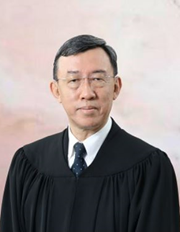
Justice Andrew Phang was appointed Judicial Commissioner in January 2005, High Court Judge in December 2005 and Judge of Appeal in 2006. He retired on 15 December 2022 before returning as Senior Judge on 6 January 2023.
Justice Andrew Phang received his Bachelor of Laws (First Class Honours) from the National University of Singapore (NUS) in 1982. He pursued his postgraduate studies at Harvard University, where he was conferred his Master of Laws and Doctor of Juridical Science degrees in 1984 and 1988, respectively. In 1990, he was admitted as an advocate and solicitor in Singapore.
Justice Phang taught at the NUS Law Faculty from 1982 to 2000 and was appointed Professor of Law in 1999. In 2000, he was appointed Professor of Law at the Singapore Management University (SMU), and a year later, became Chair of the Department of Law at SMU’s Business School. In 2004, he was appointed Senior Counsel. He was also appointed Distinguished Term Professor of Law at the Yong Pung How School of Law, SMU in January 2023 and is currently a Visiting Professor of Law at the University of Reading.
In addition to over 260 publications, Justice Phang has also authored close to 400 judgments. His judgments have also been published not only on LawNet and in the official Singapore Law Reports but also in many international law reports (including the All England Reports (Commercial Cases), Lloyd’s Law Reports, Law Reports of the Commonwealth, Fleet Street Reports, Construction Law Reports, Building Law Reports, Medical Law Reports and International Trust & Estate Law Reports). Many of his judgments have also been the subject of academic commentary in local and international journals, as well as cited and/or discussed in many books and articles as well as leading textbooks both locally and internationally.
His judgments have also been referred to in both local courts as well as in courts internationally (including the UK Supreme Court, the High Court of Australia, the Federal Court of Malaysia, the Hong Kong Final Court of Appeal, the Judicial Committee of the Privy Council (on appeal from the Supreme Court of Mauritius), as well as the Court of Appeal of England and Wales, the New Zealand Court of Appeal, the Court of Appeal for British Columbia, and the Supreme Court of Appeal of South Africa).
In recognition of his contributions to legal scholarship both as a legal academic as well as a judge over a period of four decades, the President of the Republic of Singapore awarded him the Meritorious Service Medal (Pingat Jasa Gemilang) in August 2022.
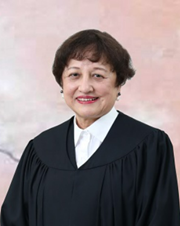
Justice Judith Prakash was appointed Justice of the Court of Appeal on 1 August 2016 (since re-designated Justice of the Court of Appeal), the first woman to be appointed a permanent judge of the Singapore Court of Appeal. She retired on 18 December 2023 and returned as Senior Judge on 2 January 2024
Justice Prakash graduated from the University of Singapore in 1974 and was admitted as an advocate and solicitor in Singapore the following year. Thereafter she was in private practice until 1992. Starting as a shipping lawyer, she subsequently practiced commercial law in the areas of banking and finance and company law. She joined the Supreme Court as Judicial Commissioner in 1992 and became a High Court Judge in 1995.
Until 2022, Justice Prakash was the Lead Judge for arbitration matters. She has sat on many cases involving arbitration issues, both at first instance and on appeal, and is one of the Supreme Court’s specialist arbitration judges. Other areas in which she has a special interest include family law and trusts, and in the commercial area, banking, finance, shipping and insurance law. She has served more than two decades in the Supreme Court and many of her judgments, particularly on arbitration and commercial law, have been influential both domestically and internationally.

Justice Allsop was appointed the Chief Justice of the Federal Court of Australia in March 2013 and retired in April 2023. Prior to that, he was the President of the New South Wales Court of Appeal from June 2008 to February 2013 and a Judge of the Federal Court of Australia from May 2001 to June 2008. He also served as an additional Judge of the Supreme Court of the Australian Capital Territory during the period 2003 to 2008.
In 2013, Justice Allsop was appointed an Officer of the Order of Australia for his distinguished service to the judiciary and to the law, for reforms he introduced to promote equity and access, and for his contributions to the administration of maritime law and legal education. He was promoted to Companion of the Order of Australia in 2023 for his eminent service to the judiciary and to the law, to organisational and technological reform, to legal education, and to insolvency law. Justice Allsop is also a Member of the American Law Institute, a Fellow of the Australian Academy of Law, and Titulary Member of the Comite Maritime International. His areas of legal expertise include commercial law, maritime and transport law, insurance law, taxation, private and public international law, equity, public and administrative law, constitutional law, and criminal law.
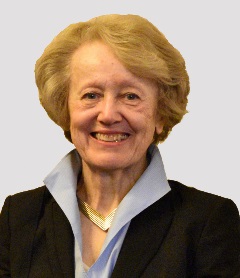
Justice Arden read law at Girton College, Cambridge and obtained a Bachelor of Arts degree and an LL.M before completing a Master of Laws at Harvard Law School in 1970 as a Kennedy Scholar. She was called to the Bar at Gray’s Inn in 1971 and admitted to Lincoln’s Inn in 1973. From 1971 to 1993, Justice Arden was in practice as a member of Erskine Chambers, specialising in company law. She became a Queen’s Counsel in 1986 and served as Attorney-General of the Duchy of Lancaster between 1991 and 1993.
Justice Arden’s judicial career started in 1993 when she was appointed to the High Court of Justice of England and Wales on 30 Apr 1993, being the first female High Court judge to be assigned to the Chancery Division. She was appointed a Dame Commander of the Order of the British Empire (DBE). Justice Arden served as the chair of the Law Commission of England and Wales from 1996 to January 1999.
In Oct 2000, Justice Arden was appointed to the Court of Appeal of England and Wales and served till 2018. Between 2005 and Sep 2018, Justice Arden was Judge in charge and later, Head of International Judicial Relations for England and Wales. She initiated and organised bilateral exchanges between the senior judiciary of the UK and the European Court of Human Rights and the Court of Justice of the European Union and also with other important jurisdictions.
She was appointed as a Justice of the Supreme Court of UK in Oct 2018 and retired in 2022. She is a Member of the Permanent Court of Arbitration, The Hague. She has sat as an ad hoc UK Judge of the European Court of Human Rights in Strasbourg.
Justice Arden is an Honorary Fellow of Girton College, Cambridge. She holds honorary degrees from University College London (2011), Liverpool John Moores University (2006), University of Nottingham (2002), University of Warwick (1999), Royal Holloway College London (1999) University of Liverpool (1998), University of Essex (1997). In May 2022 the Government of Japan conferred on her the Order of the Rising Sun, Gold and Silver Star, for her work in promoting judicial relations between the UK and Japan. She is also an Honorary Professor of Law, King’s College London and a Yorke Fellow, Law Faculty, University of Cambridge.
Justice Arden was a member of the UK Department of Trade’s Steering Group of the Company Law Review from 1998 to 2001. The recommendations made by the Review and accepted by Government were enacted by the UK Companies Act 2006, then the largest statute in British history. Justice Arden was also a member of the Financial Law Panel set up by the Bank of England to address legal uncertainties affecting financial markets and the Law Society’s Standing Committee on Company Law. In 2011, she became a member of the UK’s National Group for the purposes of Article 4 of the Statute of the International Court of Justice. She is presently a member of the Committee on Standards in Public Life, appointed by the Prime Minister of the United Kingdom.
Alongside her judicial experience, Justice Arden has also written extensively on how the law keeps pace with social change. Her two volume book “Shaping Tomorrow’s Law” published in 2015, drew strongly from her knowledge of law reforms which she began to develop while serving as chair of the Law Commission of England.
Justice Arden’s areas of legal expertise include international and foreign relations law as well as all areas of civil law, including equity, trusts, company law, insolvency, partnership, property law, statutory interpretation, bankruptcy, choses in action, torts and contract law, constitutional and administrative law, human rights law and water law.

Justice French graduated from the University of Western Australia with a Bachelor of Science (Physics) in 1968 and a Bachelor of Laws in 1971. He was admitted as a Barrister and Solicitor in Western Australia in December 1972 and completed a Master of Laws at the University of Sydney in 1978.
Justice French served as Chief Justice of the High Court of Australia from 2008 to 2017, a period during which he made significant contributions to Australian jurisprudence. His leadership was instrumental in landmark decisions on constitutional and administrative law, and the enhancement of judicial review processes. His tenure also saw reforms aimed at increasing the efficiency and transparency of the High Court’s operations.
Prior to that, he was a Judge of the Federal Court of Australia from 1986 to 2008 and President of the National Native Title Tribunal from 1994 to 1998. He has been a Non-Permanent Judge on the Hong Kong Court of Final Appeal since May 2017.
He has also been Commissioner for the Australian Law Reform Commission (2006-2008) and Deputy President of the Australian Competition Tribunal (2005-2008).
Justice French was appointed the Chancellor of the University of Western Australia from 2017 to 2024 and holds adjunct and honorary professor roles at Monash University, the University of Western Australia, and the Australian National University. He chairs the Law Council of Australia Justice Project and serves on the board of the Asian Business Law Institute.
His legal expertise encompasses general law with particular interests in intellectual property, competition, commercial, and public law. On the arbitration front, Justice French participated in multi-member and single member Arbitral Tribunals - Construction and commercial and energy infrastructure. He also published the CIARB Australia 2023 Annual Lecture, ‘Arbitration and Statute: Entanglement of Private and Public Interests’ and delivered the 2016 Goff Public Lecture, 'Arbitration and Public Policy'.
Justice French has been recognised with several honours, including Companion in the General Division of the Order of Australia (2010) and Honorary Doctor of Laws from the University of Western Australia (2011).
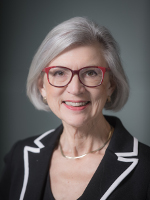
Former Chief Justice Beverley McLachlin is the longest serving Chief Justice of Canada. She retired in December 2017 after 28 years at the Supreme Court of Canada. Justice McLachlin was appointed to the Bench of the Supreme Court of British Columbia in 1981, the Court of Appeal in 1985 and then as Chief Justice of the Supreme Court of British Columbia in 1988. In 1989, she was appointed Puisne Justice of the Supreme Court of Canada and then Chief Justice of the Supreme Court of Canada in 2000. She is currently a member of the Queen’s Privy Council for Canada. Justice McLachlin has dealt with administrative law, family law, commercial and business law, press rights and intellectual property.
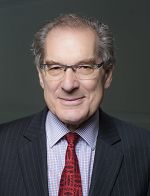
Lord Mance read law at University College, Oxford, and was called to the Bar by the Middle Temple in 1965 and appointed Queen's Counsel (now called King's Counsel) in 1982 and a Bencher in 1989. Lord Mance was a commercial lawyer, whose practice developed a substantial international element, including considerable periods in Hong Kong and The Bahamas. He was appointed a High Court Judge in 1993 and served on the British Bench for 25 years. In Oct 2009, Lord Mance became a Justice of the Supreme Court of the United Kingdom (when it was created) and he was appointed its Deputy President in 2017. He retired from the UK Supreme Court and successor to the House of Lords in June 2018.
He has written many judgments on international, commercial and European law at both the first instance and appellate levels. His specialisation in commercial law includes insurance and reinsurance, professional negligence, banking and international trade.
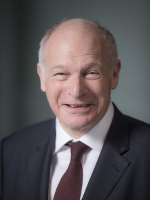
Lord David Edmond Neuberger graduated from Oxford University and was called to the Bar in 1974. He was appointed Queen's Counsel (now called King's Counsel) in 1987. In 1996, he was appointed to the Bench and became a Judge of the Court of Appeal in 2004. Lord Neuberger was President of the UK Supreme Court from 2012 to 2017 and has extensive experience in most areas of law including commercial law.
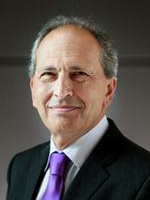
Justice Rix has extensive judicial experience at both first instance and appellate levels of court, as a Lord Justice of Appeal in the Court of Appeal of England and Wales from 2000 to 2013; as the Judge in charge of the Commercial Court of London from 1998 to 1999; and a Judge of High Court of Justice from 1993 to 2000. He is recognised for implementing the Woolf Reforms to civil procedure in the London Commercial Court, and for re-drafting the Guide and Practice Directions of that court.
Before his appointment to the bench, he specialised in international commercial law and was appointed King’s Counsel in 1981. He is currently a Justice of the Court of Appeal of the Cayman Islands and an arbitrator. He is also a Professor of International Commercial Law at Queen Mary, University of London.
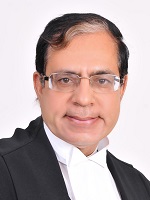
Justice Sikri was a former Judge of the Supreme Court of India from Apr 2013 to Mar 2019. He was appointed Judge of the High Court of Delhi in Jul 1999 and served as the Acting Chief Justice of Delhi High Court from Oct 2011 before being elevated to the Chief Justice of Punjab and Haryana High Court in Sep 2012. He was subsequently appointed a Judge at the Supreme Court of India in Apr 2013.
As a Judge, Justcice Sikri issued a number of landmark judgments, particularly in the field of commercial and arbitration laws, tax laws, intellectual property matters and economic laws. He retired as the second most senior judge of the Supreme Court of India in Mar 2019.
He is currently a Visiting Professor in two National Law Schools in India and conducts arbitration and mediation sessions. Mr Sikri was conferred Doctor of Laws Honoris Causa in November 2013. In 2007, Managing Intellectual Property Association (“MIPA”) selected him as one of the 50 most influential persons in Intellectual Property in the world.








